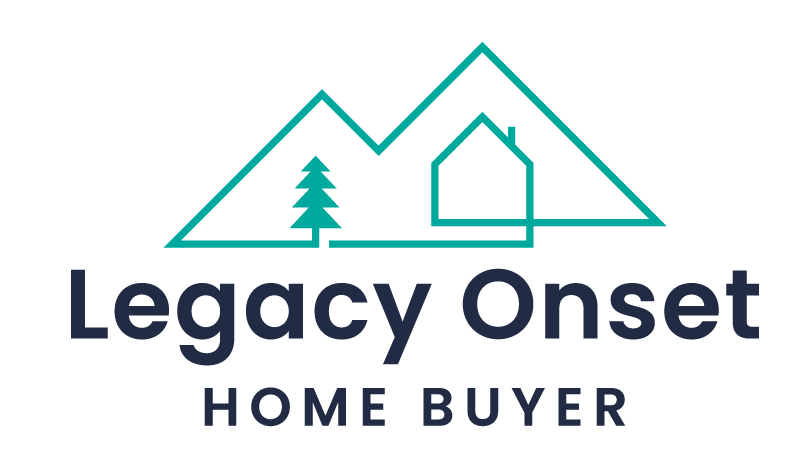From Offer to Closing: Demystifying Average Closing Costs
March 23, 2025
Selling a home often involves more expenses than many homeowners realize at first glance. After receiving an offer and moving toward the closing table, certain line items—collectively known as “closing costs”—can impact your bottom line. Whether you’re selling through a traditional process or opting for a cash buyer, knowing what goes into these fees can help you make informed decisions and better protect your profits. Understanding the nature of various closing costs and learning how to minimize them also provides clarity as you navigate the financial details of your home sale.
Why Closing Costs Matter
Closing costs refer to all the charges and fees that surface during the final stages of a real estate transaction. One of the biggest reasons sellers focus on these costs is the direct effect they have on net proceeds. Every expense—from title-related fees to notary charges—chips away at the amount you ultimately walk away with once the sale is complete.
Statistics from the Consumer Financial Protection Bureau
indicate that closing costs can account for a significant portion of a home’s sale price, though the exact percentage varies based on location and transaction type. By exploring the components of these fees early in the selling process, you can avoid costly surprises and maintain better control over your budget.
Typical Fees in a Traditional Home Sale
Many sellers interact with a host of service providers when completing a traditional, mortgage-backed transaction. Although the exact combination of fees differs by state, several cost categories are fairly standard across most contracts:
- Title Services and Title Insurance: Typically, both the seller and the buyer share responsibility for ensuring the property’s title is clear of liens or disputes. Title companies verify this through a detailed title search. In addition, title insurance can protect both parties from future claims that arise from unresolved title issues.
- Escrow or Settlement Fees: Some states require the use of an escrow service, which acts as a neutral third party responsible for collecting documents, holding funds, and disbursing them appropriately. Settlement fees cover these administrative tasks.
- Transfer Taxes and Recording Fees: Local governments often charge a fee to transfer property ownership from one party to another, and there are also costs for recording the deed at the county office. The amount varies by municipality.
- Property Taxes: Any outstanding property taxes need to be settled at closing, ensuring the buyer does not inherit overdue bills.
Although these costs can sometimes appear daunting, proactive planning and open communication with your title company or escrow officer can help you understand each line item. Having a clear breakdown positions you to better evaluate your final net proceeds before signing any paperwork.
Unique Closing Costs in a Cash Deal
When you sell your property to a cash buyer—such as a direct home-buying company—some traditional charges may not apply. For example, financing-related costs do not come into play without a lender. This can simplify the transaction and potentially reduce your overall closing expenses. Cash deals also tend to move faster, shaving off some administrative fees tied to extended timelines.
However, sellers may still need to cover certain fees, including title searches, prorated property taxes, and local transfer taxes. In many cases, a cash buyer will handle some of these closing costs as a courtesy or incentive to speed up the process. Reviewing the purchase agreement carefully clarifies which party will pay for specific items.
By understanding the variations that come with an all-cash sale, you can position yourself to negotiate effectively. If reducing time-to-close is high on your priority list, a cash buyer could be attractive, but it remains crucial to verify who covers each fee to guarantee transparency on both sides.
Strategies to Reduce Closing Costs
One key step toward lowering closing fees is to gather estimates from multiple service providers. Seek out quotes from different title companies or escrow providers. This choice goes beyond simple price comparisons; the level of service and responsiveness can also be a valuable factor, ensuring a smoother transaction.
Another approach involves discussing which fees you’re comfortable paying for and which could be shared or shifted to the buyer. In some cases, you might negotiate that the buyer covers a portion of the transfer taxes or other costs. Familiarize yourself with local norms: certain regions have customs regarding what buyers or sellers usually pay. If you’re aware of these practices, you can enter the negotiation with accurate expectations.
Keeping your property taxes up to date also plays into minimizing fees. Any past-due amounts may accrue penalties or interest, so addressing those obligations before listing can prevent them from escalating at closing. Where permitted, you might consider paying them in advance to avoid last-minute surprises.
Understanding the Bottom Line
Once you grasp which closing costs come into play, breaking down each fee can give you peace of mind. By verifying the charges, you’ll be able to manage your financial expectations and adjust your selling price or negotiations as needed. Some sellers mistakenly assume that a higher offer automatically results in more take-home money, but neglecting to account for closing costs may reduce overall profit.
The emphasis should be on transparency. Keeping track of all financial obligations—taxes, title services, inspection fees—helps you see the complete picture of how your home sale will conclude. If you’re working with a specialized buyer or exploring options to speed up the process through a cash sale, ensure you understand who pays for each expense, and verify that these details align with local regulations.
Learning about typical costs connected to closing ultimately empowers you to retain more control over your home sale. Whether you plan to sell quickly via a cash buyer or follow a more traditional path, a thorough review of these fees can keep you informed and stress-free.
Moving Forward with Confidence
If you’re eager to learn more about how different transaction types affect closing costs, turn to resources like the National Association of Realtors
for general market trends. Staying current on real estate news and regulations in your area helps you anticipate potential shifts in customary fees or tax policies.
For homeowners looking to sell a property hassle-free and gain clarity on all closing-related expenses, Legacy Onset Home Buyer
can provide personalized insights. Our services cater to those who value both speed and honesty in a transaction, ensuring you understand what costs to expect from start to finish. By partnering with a reputable home buyer, you can streamline your sale, minimize out-of-pocket expenses, and confidently move on to your next chapter.
For direct guidance on navigating closing costs and securing a quick home sale, reach out to Legacy Onset Home Buyer
today.

Selling a damaged or outdated home in Washington can feel overwhelming, especially when you're facing costly repairs, tight timelines, or properties that have been neglected for years. Whether you've inherited a fixer-upper, own a rental with significant damage, or simply can't afford the extensive renovations your home needs, you're not alone in wondering how to move forward without breaking the bank. Washington's competitive real estate market favors move-in-ready properties, making it challenging to sell homes with foundation issues, outdated systems, water damage, or other significant problems through traditional channels. Repair costs can quickly spiral into tens of thousands of dollars, and there's no guarantee that investing in improvements will yield proportional returns in your sale price. Legacy Onset Homebuyer specializes in purchasing damaged and outdated homes throughout Washington State exactly as they are. We buy houses in any condition, handle all the paperwork, and can close in as little as seven days—giving you a fast, reliable solution that eliminates repair headaches and uncertainty. Benefits of Selling Your Damaged Washington Home to Cash Buyers Sell your damaged or outdated Washington home without spending thousands on costly repairs or renovations that may not increase your sale price. Close on your timeline, whether you need to sell in 7 days to avoid foreclosure or have flexibility for a longer process that works with your schedule. Avoid the uncertainty of traditional buyers who might back out after seeing your home's condition or struggle to secure financing for damaged properties. Skip real estate agent commissions and fees that typically cost 6-8% of your home's value, keeping more money in your pocket. Get a fair cash offer based on your property's location and potential value, not just its current damaged state. Work with local Washington experts who understand the unique challenges of Pacific Northwest weather damage, seismic issues, and older home problems. Receive guaranteed closing with no financing contingencies, appraisal requirements, or last-minute surprises that can derail your sale. Who We Are Legacy Onset Homebuyer is an experienced real estate investment company specializing in purchasing homes throughout Washington State. We have extensive knowledge of local markets from Seattle to Spokane and understand the unique challenges homeowners face when selling damaged or outdated properties. Our team has been helping Washington homeowners transition quickly and hassle-free for years, providing fair cash offers regardless of your home's condition or the extent of repairs needed. Our Simple 3-Step Process: Tell Us About Your Washington Home We'll gather information about your property's condition and your timeline, with no obligation to proceed. Get Your Fair Cash Offer We'll evaluate your home and present a competitive cash offer based on its potential value in the Washington market. Close on Your Schedule Accept our offer and choose your closing date—we handle all paperwork and can close in as little as 7 days. Common Types of Damaged Properties We Buy in Washington Washington State's unique geography and climate create specific challenges for homeowners, and we regularly purchase properties dealing with these common issues. Foundation problems are particularly prevalent due to the region's seismic activity, with many older homes experiencing settling, cracking, or structural shifts that traditional buyers find concerning. Water damage represents another frequent challenge we encounter, often resulting from Washington's heavy rainfall, aging roofs, or plumbing failures in homes built before modern waterproofing standards. Many properties we purchase have dealt with basement flooding, roof leaks, or moisture intrusion that has led to mold growth or structural deterioration. Outdated electrical and plumbing systems are especially common in Washington homes built in the mid-20th century. Properties with knob-and-tube wiring, galvanized pipes, or insufficient electrical capacity struggle to attract traditional buyers who face financing restrictions or safety concerns. We also frequently purchase homes with fire damage, extensive pest infestations, or those requiring major system replacements like HVAC or roofing. Inherited properties often present the most complex situations, where years of deferred maintenance have created multiple overlapping issues. Whether it's a Seattle craftsman needing complete restoration or a rural property with septic system failures, we evaluate each damaged or outdated home based on its potential rather than its current condition. Why Traditional Sales Don't Work for Damaged Homes in Washington The conventional real estate market in Washington strongly favors move-in-ready properties, creating significant obstacles for homeowners trying to sell damaged or outdated homes through traditional channels. Most buyers using conventional financing face strict lender requirements that prevent them from purchasing properties with substantial repair needs, immediately shrinking your potential buyer pool. FHA and VA loans, popular among first-time buyers and veterans, have particularly rigid property standards. These government-backed loans require homes to meet minimum safety and habitability requirements, automatically disqualifying properties with foundation issues, electrical problems, or other significant defects. Even minor issues like peeling paint or non-functioning appliances can derail these transactions. The traditional inspection and negotiation process becomes especially problematic with damaged properties. Buyers typically request extensive repairs or significant price reductions after discovering problems, often leading to deal cancellations or prolonged negotiations that ultimately fail. During Washington's slower winter months, damaged homes face even steeper competition from well-maintained properties entering the spring market. Real estate agents often hesitate to list severely damaged properties, knowing they'll require extensive marketing efforts with uncertain outcomes. The properties that do get listed frequently sit on the market for months, accumulating carrying costs while homeowners pay utilities, taxes, and insurance on properties they can't occupy or rent. This creates a frustrating cycle where damaged homes become increasingly expensive to maintain while remaining difficult to sell through conventional methods. The True Cost of Repairing vs. Selling As-Is in Washington Many Washington homeowners underestimate the true financial impact of repairing damaged properties before selling. Beyond the obvious repair costs, you'll face contractor coordination challenges that can extend projects for months, especially in Washington's competitive construction market where skilled tradespeople stay booked well in advance. Foundation repairs, common in seismic-active areas, often require specialized contractors and permits that can cost tens of thousands of dollars. Water damage remediation involves not just fixing the visible problems but addressing hidden mold, replacing insulation, and ensuring proper ventilation—expenses that quickly compound. Electrical and plumbing updates in older Washington homes frequently reveal additional code violations requiring expensive corrections. During the repair period, you'll continue paying property taxes, insurance, and utilities on a home you can't use or rent. These carrying costs add hundreds of dollars monthly to your total investment. Additionally, there's no guarantee that repair investments will translate to proportional increases in sale price, especially in markets where comparable homes already offer move-in-ready alternatives. Washington's real estate market can shift during lengthy renovation periods, potentially reducing your expected return. Weather delays are particularly common during the Pacific Northwest's rainy season, extending timelines and increasing costs. When you factor in the stress, time investment, and financial risk of repairs, selling as-is often provides better net proceeds and peace of mind. How Cash Buyers Evaluate Damaged Properties in Washington Cash buyers approach damaged properties differently than traditional buyers, focusing on potential rather than current condition. We evaluate location value first, considering neighborhood trends, proximity to employment centers, schools, and transportation corridors that make Washington properties desirable long-term investments. Our assessment process examines both repair costs and after-repair value, using local contractor networks and market knowledge to estimate renovation expenses accurately. We consider Washington-specific factors like seismic requirements, environmental regulations, and local permitting processes that affect renovation feasibility and costs. Unlike traditional appraisals that focus on comparable sales of similar-condition properties, our evaluation looks at the highest and best use potential of your property. A damaged craftsman home in Seattle's Capitol Hill might require substantial work, but its location and architectural character create significant value that we factor into our offers. We also consider unique Washington market conditions, such as seasonal demand patterns, local zoning opportunities, and neighborhood development trends. Properties near light rail extensions, urban villages, or areas experiencing revitalization often carry premium potential despite current condition. This comprehensive evaluation allows us to make fair offers quickly, typically within 24-48 hours of seeing your property. Our goal is determining what your damaged or outdated Washington home will be worth after professional renovation, then offering a price that accounts for repair costs, carrying expenses, and reasonable profit margins while still providing you with a competitive cash offer. Legacy Onset Homebuyer offers Washington homeowners a proven solution for selling damaged or outdated properties without the stress, expense, or uncertainty of traditional sales. Our local market expertise and commitment to fair, fast transactions ensure you can move forward confidently, regardless of your home's condition. We handle all the details while you focus on your next chapter. Ready to sell your damaged Washington home quickly and hassle-free? Contact Legacy Onset Homebuyer today for your no-obligation cash offer and experience the difference of working with trusted local professionals who understand your unique situation.

Looking to sell your house fast in Seattle, Washington? You're making a smart decision in today's market. Whether you're facing a job relocation, dealing with an inherited property, avoiding foreclosure, or simply want to skip the lengthy traditional selling process, selling quickly for cash offers a direct solution to your real estate challenges. Seattle's competitive housing market and rising costs make speed essential for many homeowners. Traditional sales can take months, involving costly repairs, staging, agent commissions, and uncertain buyer financing that often falls through. Meanwhile, you're paying mortgage payments, insurance, and maintenance costs while your property sits on the market. At Legacy Onset Home Buyer, we are experienced cash buyers who purchase homes throughout Seattle in any condition. We understand the local market and why homeowners need to sell quickly. Our straightforward process eliminates the stress of repairs, showings, and financing contingencies, allowing you to sell your house fast in Seattle, Washington on your timeline with guaranteed cash in hand. Benefits of Selling Your Seattle Home for Cash Cash buyers in Seattle can close transactions in 14-30 days compared to traditional sales that can take between 5-8 months, getting you moved faster. Selling your Seattle property for cash eliminates the need for costly repairs, staging, or cleaning before closing. Seattle cash home buyers purchase houses as-is, freeing you from inspection contingencies and buyer financing concerns. Working with local Seattle cash buyers provides certainty with guaranteed offers regardless of your property's condition. Cash sales in Seattle involve no agent commissions or closing costs, maximizing your proceeds from the sale. Seattle's competitive market makes cash offers more attractive to sellers seeking speed and reliability over uncertain traditional sales. Local cash buyers understand Seattle's unique neighborhoods and can offer fair prices based on current market values. Who We Are Legacy Onset Home Buyer is a team of experienced local real estate investors purchasing homes throughout Seattle and surrounding areas for over 11 years. We pride ourselves on our deep understanding of the Seattle housing market and commitment to fair, transparent transactions. Our expertise allows us to offer competitive cash prices for homes in any condition while providing homeowners hassle-free solutions to their unique situations. Our Simple 3-Step Process Tell Us About Your Seattle Property We'll discuss your home's details and your specific situation to understand your needs and timeline for selling. Receive Your Fair Cash Offer We'll present you with a competitive cash offer based on your property's condition and current Seattle market values. Choose Your Closing Date You select the closing timeline that works best for you, with no obligation to accept our offer. Why Seattle Homeowners Are Choosing Cash Buyers Seattle's real estate market has created unique challenges for homeowners looking to sell quickly. While traditional home sales remain common, many Seattle residents are discovering the advantages of selling their houses for cash instead of listing with a realtor. Time constraints are one of the primary reasons homeowners choose cash buyers in Seattle. Whether facing job relocation to another city, financial pressure, or simply wanting to move quickly, traditional sales can take 5-8 months or longer in this market. Cash sales typically close in 14 -30 days, eliminating months of mortgage payments, insurance costs, and property maintenance. Financial considerations also drive the decision to sell for cash in Seattle. Traditional sales come with significant costs—real estate commissions (5-6%), closing costs, inspection fees, and potential repair expenses following buyer inspections. These can consume 8-10% of your sale price. Cash buyers in Seattle eliminate these costs, allowing homeowners to keep more of their equity. Many Seattle properties face challenges in the conventional market. Homes needing significant repairs, outdated properties, those with title issues, or houses in less desirable conditions may struggle to attract traditional buyers or secure financing approval. Cash buyers purchase these "as-is," removing the stress and expense of preparing a home for market. How Cash Home Sales Work in Seattle The process of selling your Seattle house for cash follows a straightforward path designed to eliminate the complexity of traditional real estate transactions. Understanding how it works can help you decide if this option makes sense for your situation. The journey begins when you contact a cash buyer like Legacy Onset Home Buyer. Unlike working with a realtor, there's no listing agreement to sign or commitment required. Your initial conversation provides basic information about your property—address, size, condition, and unique features. Many Seattle cash buyers can make preliminary offers right over the phone, giving you an immediate price range. Next comes the property evaluation. A cash buyer will schedule a convenient time to visit your Seattle home for a walkthrough. This isn't an invasive inspection like you'd experience with traditional buyers. Instead, it's a quick assessment of the property's condition to confirm the initial offer or make adjustments. Most Seattle cash buyers complete this step within 24-48 hours of your call. After the evaluation, you'll receive a formal written cash offer for your Seattle property. There's no negotiation pressure or sales tactics—just a clear, straightforward offer based on current market conditions, property condition, and neighborhood values. You can take time to consider the offer, with no obligation to accept. If you decide to proceed, the closing process begins. Cash buyers have simplified processes that eliminate financing contingencies and lengthy underwriting periods. You select your closing date—whether that's within the next couple of weeks or next month—and the buyer handles most of the paperwork. When Selling for Cash Makes Sense in Seattle Certain situations make selling to cash buyers in Seattle particularly advantageous. Homeowners facing foreclosure often find that cash buyers provide the quick transaction needed to avoid credit damage and preserve any remaining equity. The Washington foreclosure process moves relatively quickly, making the speed of cash transactions especially valuable in these circumstances. Inherited properties frequently present challenges for heirs, especially when the home is far from their primary residence or requires significant updates. Seattle cash buyers provide a straightforward solution for quickly converting these inherited assets to liquid funds without the hassle of long-distance property management or renovation projects. Job relocations can create urgent timelines that don't align with traditional selling processes. Seattle residents accepting positions in other cities or states benefit from cash buyers' ability to purchase properties quickly, allowing them to move forward without juggling two mortgages or delaying their transition. Properties in poor condition or requiring major renovations often struggle on the conventional market or fail to qualify for standard financing. Seattle cash buyers specialize in purchasing these challenging properties, seeing potential where traditional buyers see problems. Whether facing foundation issues, outdated systems, severe weather damage, or decades of deferred maintenance, cash buyers provide a viable selling option without the cost and effort of repairs. Seattle's seasonal market conditions can also influence the decision to sell to cash buyers, especially during slower periods when traditional buyers are less active. Your Trusted Seattle Cash Home Buying Solution Legacy Onset Home Buyer offers Seattle homeowners a proven path to fast, reliable home sales. Our local expertise and streamlined process eliminate the typical stresses of selling while providing competitive cash offers throughout the Seattle area. We handle properties in any condition and any location, with no repairs or cleaning required. Ready to experience the simplicity of selling to trusted Seattle cash buyers? Contact us today for your no-obligation cash offer and discover how we can help you move forward quickly with confidence and cash in hand.

Seattle’s skyline was once defined by classic mid-century structures rather than the gleaming high-rises seen today. Over the last several decades, Seattle’s real estate market has weathered cultural renaissances, economic booms, and policy shifts that have consistently reshaped the city. As the largest metropolitan hub in the Pacific Northwest, Seattle’s transformation dates back to the 1960s, when industries like aerospace fueled the city’s identity. Today, it’s the realm of tech giants that plays a central role. Below, we delve into the rich evolution of Seattle’s real estate market across several notable eras, tracing the economic forces and zoning laws that have shaped a uniquely dynamic housing landscape. Seattle in the 1960s During the 1960s, Seattle benefited significantly from the expansion of the aerospace sector, primarily led by Boeing. This era saw new suburbs sprouting around the city to accommodate a growing workforce. Neighborhoods like Queen Anne and Capitol Hill were a reflection of mid-century urban design, characterized by small businesses and family-owned homes. Seattle’s population exceeded 560,000 at the time , fueling incremental demand for residential properties. Many buildings showcased the iconic ranch-style architecture, and property prices remained relatively modest by today’s standards, reflecting both the cost of living and wage scales of the era. Zoning Laws and Their Influence Zoning regulations in Seattle have undergone repeated revisions over the years. Historically, large portions of the city were classified as single-family zoning, effectively limiting the types of new housing that could be built. Critics argued that this reduced opportunities for multifamily housing in prime areas, contributing to sprawl in outer regions. Supporters of single-family zoning countered that it preserved neighborhood character and property values. In more recent years, adjustments to zoning codes allowed for greater development density in certain zones, encouraging the construction of townhouses and multi-unit dwellings. This move was designed to make housing more attainable for a wider range of residents—from families to young professionals—although rising price tags often offset the potential benefits of added inventory. The final outcome continues to be shaped by local debates, city council decisions, and input from community groups. Urban Sprawl vs. Sustainable Development The pattern of development that emerged around Seattle from the 1970s onward reflected many of the larger trends seen across American cities: a push outward to suburban areas. Urban sprawl brought more affordable real estate opportunities, but also longer commutes and increased environmental impact, as cars remained the predominant mode of transportation. Simultaneously, there has been a growing commitment to sustainable development. In city neighborhoods like Fremont and Ballard, newer multi-use buildings incorporate green roofs, solar panels, and energy-efficient designs to reduce their environmental footprint. The city’s ambitious climate goals, tracked by Seattle’s Office of Sustainability & Environment , have influenced the architectural sense of new properties, ensuring that development is aligned as closely as possible with ecological stewardship. Where We Stand Now Seattle’s real estate journey vividly illustrates how a city’s character can be molded by both economic currents and conscious policy decisions. While many first-time buyers contend with rising prices and limited choices, Seattle continues to attract individuals seeking a vibrant urban lifestyle. For newcomers and longtime residents alike, recognizing the historical steps that led to this housing climate can help inform decisions about the ever-changing opportunities in the market. If you’re exploring your options in Seattle’s evolving housing landscape, our team at Legacy Onset Home Buye r offers resources and support to help guide you forward. Whether you’re looking to buy, sell, or simply learn more, understanding the deeper story behind today’s real estate market can empower you to make confident, well-informed decisions. Through the past half-century, Seattle has evolved from a modest center of aerospace innovation to a global tech hotspot. Along the way, housing availability and urban planning have occupied the spotlight—as families and companies alike have sought to stake their claims in a city defined by aspiration and forward thinking. By tracing these decades of transformation firsthand, it becomes clear that Seattle’s real estate market is still in motion, reflective of a constant balancing act between economic propulsion, policy evolution, and the pursuit of a sustainable urban future. Contact us at Legacy Onset Home Buyer if you’re curious to learn more about how you can navigate Seattle’s dynamic real estate scene.

Selling a home involves more than just putting it on the market and hoping for a great offer. When a property looks clean, updated, and well-maintained, buyers—especially those looking to purchase quickly—are more inclined to offer a higher price. Fortunately, you don’t have to invest in expensive renovations to make a real difference. Simple, cost-effective improvements not only enhance curb appeal but also reassure buyers that the home is in good condition. Below is a detailed checklist of essential maintenance tasks that can make your home stand out and potentially boost its sale value. Why Address Home Maintenance Before Selling Creating a positive first impression starts the moment buyers step onto your property. A well-maintained home can command a higher final sale price, as it signals to buyers that the property has been cared for and is less likely to come with hidden surprises. Even small repairs can build trust and confidence, two important elements that often make or break a deal. Additionally, addressing these tasks ahead of time can help you avoid last-minute negotiation setbacks. When buyers see minor issues–like leaky faucets or peeling paint–larger questions about the home’s overall integrity may follow. By taking care of simple, inexpensive fixes upfront, you can save time, reduce uncertainty, and enhance the perceived value of your home. Improve Curb Appeal on a Budget Many potential buyers decide whether to pursue a property based on its exterior appearance . A neat, inviting front yard can set the tone for an entire showing. If possible, mow the lawn regularly, trim overgrown shrubs, and clear away any clutter around the exterior. Make sure the walkway is free of debris and consider refreshing the front door with a fresh coat of paint in a neutral color. For an even simpler approach, pressure-washing the driveway, sidewalks, and siding can give the home’s exterior a refreshed look. By investing in these small touches, you show your home at its best without spending a fortune. Some homeowners also find it beneficial to position potted plants near the entryway. A splash of greenery can make a property feel more inviting and establish a pleasant atmosphere right from the start. Refresh Interior Surfaces Inside the home, walls and floors carry a lot of visual weight. If your paint is outdated or scuffed, a new layer in a neutral shade can dramatically brighten and modernize each room. Neutral colors appeal to the widest range of buyers and create a blank slate that allows visitors to imagine themselves living in the space. In addition, pay attention to floors. Steam-clean or shampoo carpets to remove stains and odors. For hardwood or laminate flooring, a gentle polish can make surfaces shine. Even small touch-ups, like replacing cracked floor tiles, can significantly enhance the overall impression. Fresh paint and well-maintained flooring often rank high on the list of cost-effective home updates that positively influence sale value. Pay Attention to Minor Repairs Small issues, when left unattended, send a signal to potential buyers that bigger problems might lurk beneath the surface. Leaky faucets, running toilets, squeaky doors, and flickering light fixtures are quick fixes that improve a buyer’s overall experience during showings. Sometimes a missing screw or a bit of new caulking in the bathroom can go a long way toward making rooms look pristine. If you notice that air filters in your heating or cooling system are dirty, replace them before opening the home for visits. Properly functioning HVAC systems increase comfort for potential buyers and demonstrate responsible upkeep. Taking care of these minor details shows you’ve been meticulous in how you’ve maintained the property, which can be a strong selling point. Presenting Your Home to Cash Buyers When it comes to cash buyers, they often look for homes that require minimal additional investment. Taking care of smaller repairs yourself can help you secure a stronger offer because buyers appreciate the opportunity to move forward without extensive renovations. If they see that you’ve covered the basics, they are more likely to view the property as a low-risk investment, which can lead to more favorable pricing. To learn more about straightforward, hassle-free selling options, visit Legacy Onset Home Buyer . By focusing on essential home maintenance, you can put your property in the best possible light, both for conventional and cash buyers alike. Making a property feel fresh, clean, and well-tended often yields substantial benefits when it comes time to finalize a sale. While major projects may boost a home’s value significantly, smaller, budget-friendly fixes can successfully address common buyer concerns and elevate perceived worth. By tackling them before listing the property, you show buyers you’ve gone the extra mile to maintain the space. This attention to detail can translate into higher offers and a quicker sale, positioning you for a smooth and rewarding transaction. For additional resources on minimizing repair and renovation work while still attracting solid offers, explore the latest insights on our blog . Investing in small-scale maintenance now can pay off in the form of a more lucrative, stress-free sale in the future.

When most people picture a typical home sale, they often think of bright spring days or bustling summer weekends. However, there’s a growing trend of sellers who choose to list their property—even during winter—directly to cash buyers. This approach can offer a streamlined transaction in a season often dismissed as “slow.” Below, you’ll find tips and insights tailored specifically for homeowners in Bellevue who aim to sell their property for cash during the colder months. Discover How Winter Can Still Be Profitable for a Cash Sale Reduced Competition During winter, many sellers hold off on listing their homes, waiting for the warmer seasons. By moving forward, you’ll face less competition for prospective buyers’ attention. Cash buyers looking in Bellevue during this time might have fewer properties to compare, potentially placing your home front and center. More Serious Cash Buyers People willing to go out searching for properties in the colder season generally have specific reasons for purchasing quickly—job relocations, investment opportunities, or personal time constraints. These factors often translate into swift decisions, aligning perfectly with the speed and efficiency of a cash transaction. Consistent Demand in Bellevue Bellevue’s robust economy, supported by a strong tech scene and high quality of life, spurs consistent real estate interest year-round. Whether the forecast calls for rain or a rare blanket of snow, Bellevue often boasts a steady stream of eager home shoppers, including cash buyers who prefer a smooth, fast sale. Understand the Key Benefits of Selling Your Bellevue Home for Cash Streamlined Process One of the greatest advantages of selling to a cash buyer is the reduced complexity. When you eliminate financing steps—like loan approvals or meeting lender requirements—the entire sale can go faster. Winter weather or holiday schedules often complicate extended processes, so having fewer contingencies can help you close sooner. Predictable Timeline Cash sales generally involve fewer moving parts, which leads to more predictable timelines. You won’t have to worry about mortgage underwriting or possible lender setbacks. In winter, that reliability can be a lifesaver if you need to relocate or if you’d like to finalize your transactions before spring arrives. Fewer Showings Because a cash buyer typically makes decisions quickly, you probably won’t need to schedule open houses or endure constant tours. When chilly weather or early sunsets might discourage traditional open-house attendance, working with a cash buyer who knows what they want can reduce the inconvenience of showing your home multiple times. Set Your Home Apart for Cash Buyers in the Winter Emphasize Winter-Ready Features Showcase any traits that make your home stand out in cold or damp conditions. Does your property feature high-efficiency heating systems, new insulation, or double-pane windows? Bellevue’s winter is mild, but buyers still value comfortable interiors that stay warm without racking up utility costs. Create a Welcoming Atmosphere When buyers walk in from the cold, they should immediately feel at home. Simple touches , like soft lighting, an inviting scent, and cozy décor, can help them envision spending the season—and beyond—in your property. Keep It Accessible When scheduling an appointment with a prospective cash buyer, ensure driveways, walkways, and entry paths are clear of any debris or precipitation. Bellevue might not get heavy snow regularly, but slick conditions can appear. A well-maintained exterior sets a positive, confident tone right from the start. Offer Flexible Viewing Options Some buyers may not be around on weekends or might want to see the property at unconventional times. Stay open to evening or even brief midday appointments. In winter, fewer daylight hours can make scheduling trickier, but flexibility can spell the difference between a missed opportunity and a fast sale. Know the Common Winter Challenges Shorter Daylight Hours It’s no secret that winter days are shorter. Whenever possible, arrange showings or property tours during midday, when natural light can flatter your interiors the most. If that’s not feasible, invest in quality lighting to keep rooms bright and welcoming. Holiday Interruptions November through January often brings a flurry of holiday activities. This might mean some potential buyers are busy—but it can also be an ideal moment if they need a quick purchase. If a buyer’s timeline is urgent, the holiday season won’t stand in their way. Weather-Related Delays Occasional snowy or icy conditions can disrupt plans. Offer virtual tours if showings get postponed, and keep lines of communication open. Let buyers know you’re willing to work around shifting schedules—this level of cooperation can help move the deal along smoothly. Learn Why a Winter Cash Sale Can Be Advantageous in Bellevue A Steady Market Despite the dip in listings, Bellevue’s strong local economy keeps the real estate market from freezing over in winter. People still transition here for work, and investors keep an eye on properties that can yield solid returns. Quick Access to Funds Cash transactions are known for their speed. While some might see winter as off-season, a quick sale can align perfectly with major financial goals—like settling taxes or starting the new year with a fresh slate. Bellevue’s home prices often reflect the city’s robust demand, allowing you to capitalize on your property’s equity without a drawn-out process. Spring Opportunities Selling in winter means you’ll likely wrap up the process before the busy spring market. If you’re looking to reinvest, relocate, or simply avoid the competition frenzy, a successful winter transaction frees you up for the next steps in your personal or professional life. Sell Your Bellevue Home for Cash This Winter Every homeowner’s circumstances are unique. However, if your priority is to simplify the process, reduce uncertainties, and finalize a deal quickly—even during the colder months—focusing on cash buyers can be a smart move. Bellevue’s ongoing attractiveness to professionals, families, and investors ensures that winter can still be a fruitful period to sell. Don’t let the season deter you from making a strategic move. By emphasizing your home’s winter-readiness, creating a welcoming interior, remaining flexible, and highlighting features that appeal to a cash buyer, you can potentially secure a reliable and efficient sale, even in the slower months. Selling your Bellevue home doesn’t have to wait until the flowers bloom. If you’re ready to streamline your transaction and leverage the city’s year-round demand, consider taking advantage of winter’s quieter market. You may discover that the “off-season” provides the perfect environment for a timely cash sale —maximizing both convenience and financial returns. Legacy Onset Home Buyer specializes in quick, cash-based transactions, eliminating the traditional burdens of real estate sales. We offer a seamless, hassle-free home selling experience, with no fees, commissions, or need for repairs. This makes us an ideal choice for selling your home in any season, including winter, when you might need a fast, efficient transaction. Contact Legacy Onset Home Buyer today for a fair cash offer and experience a smooth and efficient home selling process tailored to your unique needs.

A sluggish real estate environment can feel overwhelming, particularly in cities like Tacoma and Spokane where market trends often swing back and forth. The good news is that you can still secure a successful sale with the right plan of action. This guide explores effective methods for attracting the attention of serious buyers and highlights how cash buyers may help reduce the uncertainties commonly found in slower markets. Understanding the Effects of a Sluggish Market When listings outnumber active buyers, a home may sit on the market longer. This imbalance can lead prospective buyers to submit lower offers because they’re aware that sellers have fewer alternatives. In places like Tacoma and Spokane, market fluctuations can stem from variables like seasonal employment, shifts in population, and local economic conditions. Homes in this region may occasionally face longer listing times than those in high-demand metropolitan areas. This underscores the need to adapt and stand out if you want to succeed. Strategy 1: Make a Memorable First Impression First impressions pack a powerful punch and give buyers immediate insight into the care and presentation of a home. Simple landscaping updates, such as trimming edges and adding potted plants, can boost curb appeal and demonstrate your commitment to maintaining a welcoming property. For interiors, a fresh coat of neutral paint in frequently used spaces and a clutter-free environment help prospective buyers picture themselves living happily in the property. Professional, high-quality photographs give an added advantage by showing the home at its absolute best online. Strategy 2: Price According to Market Conditions Pricing your home goes beyond setting a figure that reflects your personal attachment. Instead, study recently closed sales for properties that match your own in size, location, and condition. This data-driven approach helps attract qualified buyers who are more likely to schedule visits and make realistic offers. If you are willing to negotiate, consider responding to offers promptly and accommodating requests that might bring a deal to a faster conclusion. Keep track of home value trends in Tacoma and Spokane to ensure that your price remains competitive in a slow-moving market. Strategy 3: Expand Your Marketing Efforts In less active markets, visibility becomes a critical success factor. Although online listings remain essential for showcasing your property, don’t overlook the value of word-of-mouth. Friends, neighbors, and local community groups may reach potential buyers more effectively than broad promotional channels. Timing also counts: well-chosen moments for showings, such as weekends or early evenings, can maximize turnout. Using local listing sites focused on the Tacoma and Spokane areas can further refine your reach to people actively searching in those neighborhoods. Strategy 4: Consider Seasonality and Timing Even in a slow market, real estate activity often fluctuates with the seasons. Spring and summer, in particular, can draw more families looking to relocate before a new school year starts, while early fall can be appealing to those who prefer settling in before cold weather arrives. Consulting local real estate reports can provide insights into the most active selling periods. If your timeline is flexible, you may see more buyer interest by syncing your listing with these peak periods. Strategy 5: Stay Flexible and Transparent Adopting an open attitude can make a significant difference in how smoothly the sale moves forward. If a buyer requires a particular closing date, accommodating that preference might be exactly the deal-maker they need. Offering credits for planned improvements or repairs can also sweeten the pot for interested buyers who may otherwise be on the fence. Above all, clear communication about your home’s condition, history, and any pre-sale enhancements fosters trust and encourages more decisive offers. The Influence of Cash Buyers in Slower Economies When anxiety over financing delays seeps into the seller’s mindset, cash buyers can feel like a welcome relief. This alternative route streamlines the sales process by removing the necessity for mortgage approvals and other bank-related steps. It also minimizes the risk of a deal collapsing because a buyer fails to secure funding. The resulting faster closings and reduced possibility of fall-through can be particularly attractive in regions experiencing ongoing economic shifts. Sellers in Tacoma and Spokane who want to avoid potential fallbacks often find reassurance in cash offers . Success in a slow market depends on monitoring current data, pivoting quickly if new opportunities arise, and exploring all viable options without letting uncertainty hold you back. A combination of diligent research and willingness to adapt can ultimately help you secure a satisfying and efficient sale.

A property deed is a legal instrument that transfers ownership rights from a seller (also called the grantor) to a buyer (known as the grantee). Deeds serve as the foundational documentation proving who holds the title to a particular piece of real estate. Because they are so critical for establishing valid ownership, it is essential for sellers to understand the different types of deeds available and how each type can influence the transaction. This blog will explore the core deed types, explain the processes involved, and outline how selling to a cash buyer influences your decisions as a seller. General Warranty Deed The general warranty deed is considered the highest form of protection for buyers and the most comprehensive in terms of seller obligations. When you, the seller, transfer property using this deed, you issue a guarantee that you own the property free and clear of all liens or other claims, dating back through the entire chain of title. In other words, you warrant that the history of ownership is clean and that any issues with title—regardless of who might have caused them in the distant past—will be your responsibility to address if they arise later. For sellers, offering a general warranty deed means providing significant assurances. In most real estate transactions, buyers (and especially their lenders) prefer this deed because it minimizes their risk. However, if you have uncertainties about the title’s history, it may be wise to conduct thorough title research or invest in title insurance. Selling with a general warranty deed could be more appealing to all-cash buyers because it conveys a sense of security, but you need to be fully confident in your property’s title status before making any guarantees. Special Warranty Deed A special warranty deed, sometimes called a limited warranty deed, provides more restricted guarantees than the general warranty deed. With this deed, you typically warrant that the property was free from encumbrances during the time you owned it, but you do not extend that guarantee to any previous owners. Essentially, you are saying that you personally have not done anything to cloud the property’s title; if a title defect occurred before you took possession, it is not your responsibility. For sellers, the special warranty deed may be less binding than a general warranty deed. Buyers receive some coverage because they have assurances about the period of your ownership, but they must accept risks associated with earlier ownerships. This deed is often used in commercial real estate transactions or sales of bank-owned properties, although it can also appear in residential transactions. For a cash buyer who wants some peace of mind but may not require the extensive coverage guaranteed by a general warranty deed, the special warranty deed can be an acceptable middle ground. Quitclaim Deed A quitclaim deed provides the least level of protection for the buyer and, correspondingly, the least obligation for the seller. With a quitclaim deed , you transfer whatever interest you have in the property—if any—without making any warranties about liens, encumbrances, or defects in title. This type of deed is often used when property is conveyed as a gift, when transferring ownership between family members, or in divorce settlements where one party relinquishes their claim to the property. For sellers, this deed can be appealing if you want to minimize risks and future liabilities. However, buyers often avoid quitclaim deeds in arms-length transactions because there is no guarantee that the title is fair or marketable. If you are dealing with a cash buyer who is fully aware of the risks and still finds the property attractive, a quitclaim deed could expedite the process. Yet, most traditional buyers prefer a deed type that offers more security. The Selling Process and Deed Preparation Regardless of the deed type, the process of transferring property rights involves several key steps for the seller. You must provide accurate documentation of your ownership, typically verified through a title search. Once you select a suitable deed—often in consultation with an attorney or title company—you will sign it in the presence of a notary public. Afterward, the deed must be recorded at the local county recorder’s office to ensure public notice of the change in ownership. Selling to a Cash Buyer When a buyer can pay in cash, the transaction often progresses more swiftly because there is no waiting period for loan underwriting. However, this speed can make it even more important for a seller to know which deed type is appropriate. A cash buyer might be willing to accept a deed with fewer warranties if they plan to manage renovations or minor title issues themselves. On the other hand, providing a general warranty deed might be a strategic advantage if you wish to attract more offers or ensure a higher sales price. Navigating the nuances of property deeds can seem daunting, but knowing which type of deed suits your circumstances is key to a trouble-free transaction. Whether you choose a deed that offers broad warranties or one with limited promises, transparency is crucial. Make sure you investigate your property’s title thoroughly, and consider consulting a real estate professional or attorney to help guide you. By selecting the right deed type and following proper procedures, you can build trust with your buyer, minimize future liability, and increase your likelihood of a smooth and successful closing. Ready to sell your property without the hassle of traditional financing? Take the first step toward a stress-free transaction by contacting Legacy Onset Home Buyer today.

Inheriting a property can be both a financial windfall and a potential source of stress if you’re unsure how to maximize its value. While memories of family gatherings and personal connections may linger in the home, there are times when turning the property into a direct profit is the most practical option. This guide will steer you through the cash-selling process, reveal common pitfalls to avoid, and offer tax strategies that keep your earnings high. Understanding the Value of an Inherited Property Before taking any steps toward selling, begin by understanding the home’s value. Factors such as location, property condition, and local market trends will affect the price you can command. Hiring a professional real estate appraiser is one way to pin down a realistic number, and it also helps to consult comparable property listings in the neighborhood. Inherited properties can sometimes be undervalued if they haven’t been updated in years. Factoring in needed repairs and cosmetic improvements can significantly increase the overall attractiveness to prospective buyers. If you aim to sell quickly for cash , remember that many buyers in this market are looking for a bargain. Nonetheless, setting a fair price based on accurate insight from experts can help you avoid leaving money on the table. When you have a firm understanding of your property’s worth, you’re in a strong position to negotiate effectively. Cash Selling Strategies For many people who inherit a home, the priority is to convert it into usable funds as swiftly as possible. Unlike the traditional real estate market, selling a property for cash often allows for faster closings and fewer contingencies. One route is to work directly with real estate investors who specialize in buying homes as-is. This means you won’t have to spend time and money on repairs, home staging, or lengthy open houses. Another route involves placing ads in local forums or online marketplaces to reach potential cash buyers. However, this approach may require more hands-on negotiation and due diligence. Whether you opt for an investor or choose a more direct outreach, focus on verifying that your potential buyer has a reliable track record. Confirm proof of funds and ask for references from past sellers. Establishing these checks early can help you avoid last-minute surprises and failed deals. Avoiding Common Pitfalls One common mistake when inheriting property is assuming that sales can happen overnight. Even with a cash sale, you may need to go through legal processes such as probate , especially if multiple heirs are involved or if the estate’s ownership structures are complicated. To navigate this efficiently, hire a qualified attorney who specializes in estate law. This professional can help you confirm that all necessary documents are in order. An additional pitfall is overlooking the real cost of repairs and unexpected maintenance. If you’re aiming to maximize your profit, you might consider minor renovations that yield a solid return. Yet, it’s crucial not to over-improve. Spending thousands of dollars on high-end features may not always translate into a higher selling price in certain markets. Striking the right balance can save you from eroding your profit margins. Tax Strategies to Keep Your Profit Margin High Tax implications can dramatically affect your bottom line. Depending on your circumstances, you may be liable for capital gains tax , estate tax, or inheritance tax. A step-up in basis can be a considerable advantage for individuals who have recently acquired the property. Essentially, the cost basis for tax purposes is recalculated to the property’s market value at the time of inheritance. Consulting a tax professional is a smart move to ensure you utilize all possible deductions and credits. For example, if you sell quickly for cash, you might qualify for certain exemptions or reduced rates if the property is deemed your primary residence for a required period. State and local tax exemptions could also apply, especially if the estate’s total value is below certain thresholds. Staying informed about these rules will help you avoid tax penalties and keep more of the profit from any cash sale. Navigating State Regulations Each state has specific regulations that can influence how quickly and efficiently you can sell an inherited property. You may need to provide proof of legal ownership, complete certain property disclosures, or ensure compliance with local housing codes. If the home is part of a historic district or has other special designations, you might need additional permits for major repairs or renovations before selling. Familiarizing yourself with these guidelines will help you remain compliant and avoid unnecessary delays. Working with a local real estate attorney or a reputable title company can streamline the compliance process. These experts can make sure liens are cleared and that all heirs have signed off on any transactions. They will also guide you on whether a probate proceeding is required under your state’s laws. Bringing It All Together Selling an inherited home for cash doesn’t have to be a complicated ordeal. By taking the time to establish an accurate market value, employing a clear cash-selling strategy, and steering clear of common pitfalls, you set yourself up for a seamless transaction. Contemplate minor repairs when they can boost the property’s appeal, but be wary of over-spending on upgrades that won’t offer a return on investment. On the financial front, get a solid understanding of the tax implications and work with professionals to minimize liabilities. Finally, comply with state regulations and ensure all legal requirements are met. When you approach the process with diligence, you can convert an inherited property into a profitable venture without the extra headaches. If you’re looking to skip the stress, close quickly, and secure a fair cash offer for your inherited home, Legacy Onset Home Buyers is here to help. Contact our team of seasoned professionals to get a no-obligation offer today.

Interest rates have become a central topic in discussions about the housing market, especially given recent trends that have seen fluctuations both nationally and within Washington state. Over the past year, interest rates have generally been on the rise, influenced by factors such as inflation and monetary policy adjustments by the Federal Reserve. According to the Federal Reserve, these changes are part of broader economic strategies aimed at stabilizing the economy. As experts predict potential further increases, understanding these trends becomes crucial for both buyers and sellers in the housing market. Influence of Rising Interest Rates on Home-Buying Decisions As interest rates climb, the cost of borrowing increases, directly impacting mortgage rates. This rise in mortgage costs can deter potential homebuyers, making homes less affordable and prompting hesitation among those considering entering the market. In high-demand areas such as Seattle and Bellevue, the psychological impact is significant. Buyers may fear committing to a purchase, worried that rates could climb even higher, further increasing their financial burden. Such concerns can lead to a slowdown in home-buying activity, affecting the overall housing market dynamics. Effects on Home-Selling Decisions in Washington Sellers in Washington are also feeling the effects of rising interest rates. Higher borrowing costs for buyers often result in reduced demand, which can lead to a slowdown in the market. Sellers might experience delays in selling their homes and may need to adjust their pricing strategies to attract buyers. The impact of these trends can vary across different regions. For instance, while Seattle and Bellevue might see a noticeable slowdown, areas like Spokane and Tacoma could experience different market conditions due to varying demand and economic factors. The Role of Cash Sales in a High-Interest Environment In a market characterized by rising interest rates, cash sales can offer a strategic alternative for both buyers and sellers. A cash sale involves the buyer purchasing a property outright without the need for financing. This method has several advantages, particularly in a high-interest environment. For sellers, cash sales eliminate the complications associated with mortgage-dependent buyers, such as financing contingencies and potential delays. The speed and reliability of cash transactions make them an attractive option, especially when market conditions are uncertain. Leveraging Cash Sales to Overcome Market Challenges To effectively appeal to cash buyers, sellers can employ specific strategies. Marketing homes to highlight the benefits of a quick and certain transaction can be effective. Setting realistic expectations is also important, as cash offers might be slightly lower than those involving mortgages. However, the reduced risk and faster closing process often make cash sales competitive. In areas like Vancouver and Tacoma, cash sales have been a successful strategy to circumvent market slowdowns, providing sellers with a viable path to closing deals efficiently. Cultural and Economic Factors Influencing the Washington Housing Market Washington's housing market is influenced by a range of cultural and economic factors. Local economic conditions, such as employment rates and the growth of the tech industry, play a significant role in shaping housing demand, particularly in cities like Seattle. Cultural attitudes towards homeownership may also shift in response to changing economic conditions, affecting buyer and seller behavior. The state's unique geographical and economic landscape adds another layer of complexity to market dynamics, influencing how individuals approach real estate transactions. Future Outlook for Washington's Housing Market Looking ahead, the future of Washington's housing market will depend on various factors, including the trajectory of interest rates. If rates continue to rise, we may see further shifts in buyer and seller strategies. Technological advancements and remote work trends could also influence housing demand, potentially increasing interest in both urban and rural areas. Additionally, potential policy interventions or economic shifts could alter current trends, making it essential for stakeholders to remain vigilant and adaptive. Adapting to a Changing Market The current interest rate trends present both challenges and opportunities for those involved in the housing market. By understanding these dynamics and considering alternative strategies like cash sales, buyers and sellers can better position themselves to succeed. Remaining informed about market trends and being open to adjusting approaches will be key to thriving in a landscape characterized by rising interest rates. Considering the challenges posed by rising interest rates in Washington's housing market, sellers may feel uncertain about navigating the market. However, Legacy Onset Home Buyer offers a valuable solution for those looking to sell their home in a potentially hard-to-sell market. By providing cash offers and quick closing processes, Legacy Onset Home Buyer can help sellers bypass the complications associated with mortgage-dependent buyers and fluctuating market conditions. Don't let interest rate trends deter you from selling your property efficiently. Contact Legacy Onset Home Buyer today to explore your options and take the first step toward a smooth and successful home sale.

Selling your home is a significant life event that can greatly impact your financial landscape. Whether you're choosing to downsize, relocate, or capitalize on the increased value of your property, understanding the financial implications is vital. This guide explores the various strategies and considerations for planning your financial future after selling your home.
